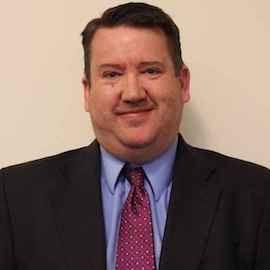On Dec. 16, the Media Research Center’s Curtis Houck claimed that “CNN’s existence can be boiled down to gaslighting Americans by deeming most everything President Trump and those not in the Resistance utter as conspiracy theories” and bashed a CNN host for having “entertained a wild conspiracy theory about not holding a Senate impeachment trial.”
A couple weeks later, Houck’s boss was entertaining his own conspiracy theory.
Tim Graham used a Jan. 2 post to boost conspiracy-mongering by the Washington Examiner’s Eddie Scarry — last seen around here getting a pass from the MRC for a tweet mocking the way a Democratic congresswoman dresses — attacking the Washington Post over reporting that President Trump “falsely” accused National Security Council staffer and impeachment hearing witness Alex Vindman of plotting with the whistleblower who reported the substance of Trump’s “I need a favor” conversation with the Ukrainian president. Graham copy-and-pasted Scarry saying, “Vindman testified that he didn’t know who the whistleblower is, but we shouldn’t necessarily believe that — especially not after the televised hearing,” citing how a line of Republican questioning to Vindman was blocked out of fear of outing the whistleblower, prompting Scarry to deduce (despite lacking any corroborating evidence) that Vindman talked to the whistleblower. Graham added:
Maybe the Post is speaking Clintonese on this one. Vindman spoke with the whistleblower — he told him all his concerns — but didn’t plot with the whistleblower to “undermine” Trump.
Just as the Post would deny it’s plotting to undermine Trump. Journalists are just safeguarding democracy.
Scarry asked “why would the Washington Post feel such confidence that Vindman really wasn’t interested in undermining the president?” That also raises the question: How much does the Post know directly from Vindman and the “whistleblower” that they’ve hidden through anonymous sourcing?
Anonymous sourcing makes it harder to prove anyone’s plotting to undermine anyone. That’s why the media love to exploit it.
Again, there’s no actual evidence that Vindman talked to, let alone plotted with, the whistleblower — Scarry and Graham are merely speculating based on conjecture. As Media Matters summarized: “It’s possible Vindman talked to the whistleblower without being aware that they went on to file a complaint, or that Vindman provided the readout to someone who passed it along further. He might have an idea of who the whistleblower is but lack certainty.”
Apparently, conspiracy theories are OK only when conservatives can make use of them.
